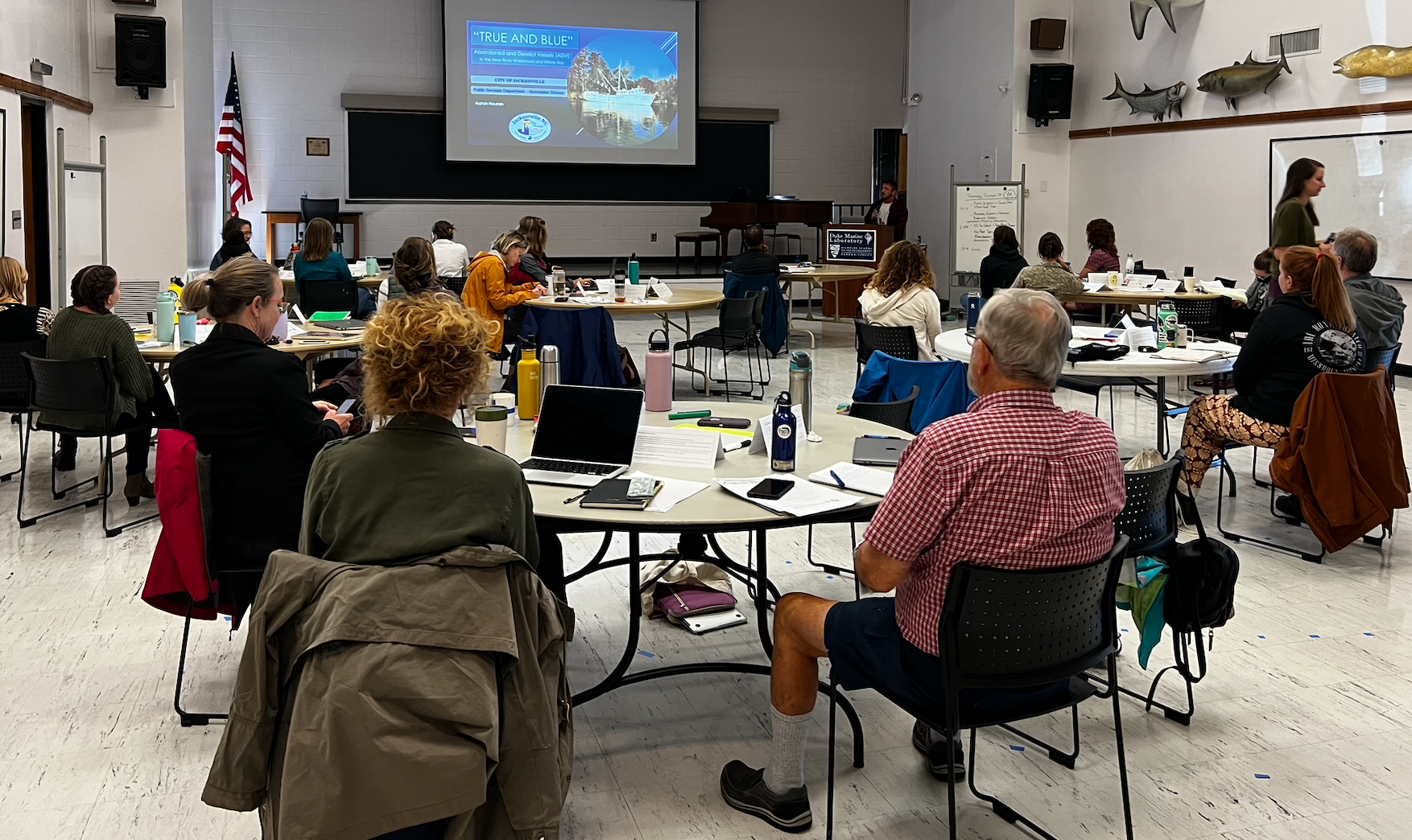Day 1 of the symposium focused on research-based outreach and education. The sessions, on this day, highlighted how microplastics impact fisheries and how the public can get involved in citizen science and advocacy efforts that will reduce impacts to fisheries, human health, and our community environment. Sessions included fisheries research relative to microplastic impacts, an educator workshop that showcased ways to engage teachers and students with stormwater based plastics research, and CCRW’s Executive Director, Lisa Rider, presented on how collaborative programming can target audiences and increase public awareness about how water quality (including plastics pollution concerns) can impact fisheries in coastal NC. Two films where screened at the end of day 1, Tidal Alert (seen here) and 356: The Incredible Story of How Saving Whale Can Save Us.
Day 2 focused on research, partnerships, and policy. During the morning session, researchers from Plastic Ocean Project presented on plastic ingestion and microplastic accumulation research, while NC Sea Grant and CCRW presented on river system research partnerships and the success of upstream capture devices. One of the programs highlighted on day 2 is a project where CCRW is working with the City of Jacksonville to capture debris and identify common pollutants through the installation of a Trash Trout capture system and continual monitoring. A highlight of day 2 was the NC Plastics Policy Workshop. Presentations during this session covered how Statewide and local level policies can make a huge impact on reducing plastic pollution. Also covered in day 2, a session on the benefits of reusables, and a program on locally tested products that can make a difference in everyday consumer plastic waste reduction.
|
Day 3 included collaborative discussions on current plastic removal technologies and what is being done to reduce marine debris pollution in the US. Day 3 included information about regional waste management infrastructure, using drones for marine debris surveying and collection, and big picture considerations. Day 3 also included a session on how plastics can impact composting, how to spot compostable greenwashing, and other plastic pollution reduction guidelines for NC composting.
“It has been an honor to present another collaborative agenda for the NC Marine Debris Symposium this year. This is one of my favorite events of the year. It’s become a family reunion for many who work tirelessly to prevent plastic pollution in NC. Our team is grateful for the support of those that submitted papers, volunteered time, presented, sponsored, and participated. We’re looking forward to another year of planning content that will reduce plastic pollution and protect the quality of water and life in NC.” “Thanks for a wonderful enlightening symposium last Thursday. I have been doing my plastic inventory at home and I have a lot of work to do. It’s amazing how plastics are everywhere. Now that my eyes are open, I can start to make changes. Unfortunately it is going to slowly because of how entrenched plastics are in our lives.”
“This was my first NCMDS and I am so honored to be a part of such a collaborative effort to reduce marine debris in North Carolina. The presenters were local researchers and industry working professionals that taught me so much about the issue. By the end of the Symposium I felt so inspired to make a difference and felt equipped with a toolkit of resources. I look forward to using what I have learned to support Coastal Carolina Riverwatch’s debris reduction efforts.” – Riley Lewis, White Oak Waterkeeper
Check out the full agenda here.
|
|
|
|
Thank You!
CCRW would like to extend special thanks to the participants of the 10th NCMDS. Their contribution to conversation and the expertise and diversity of the presenters lead to a deeper understanding of the issue and the culmination of resources needed for local advocates to make change.
We would also like to highlight the Duke Marine Lab for their beautiful campus and great tech support for our virtual attendees.
Thank you |


